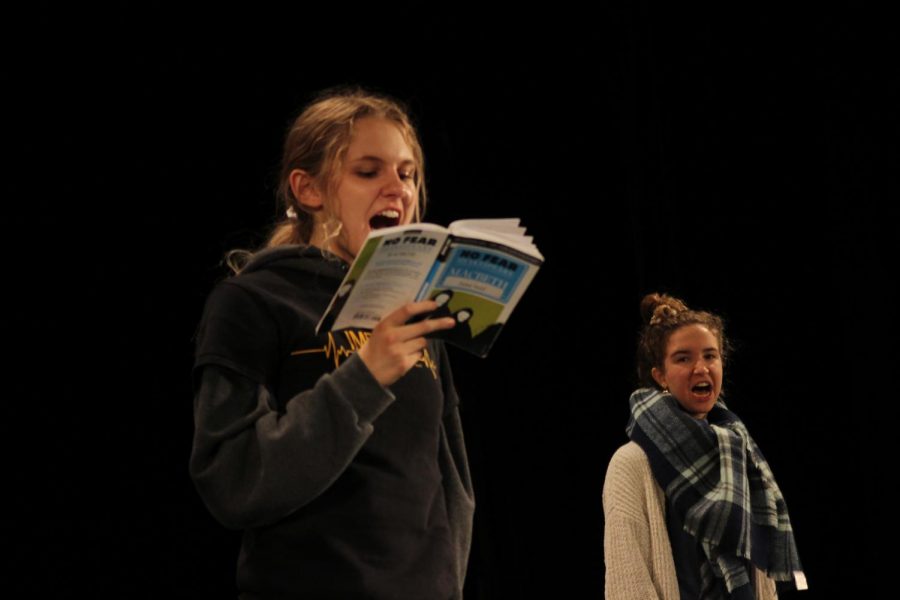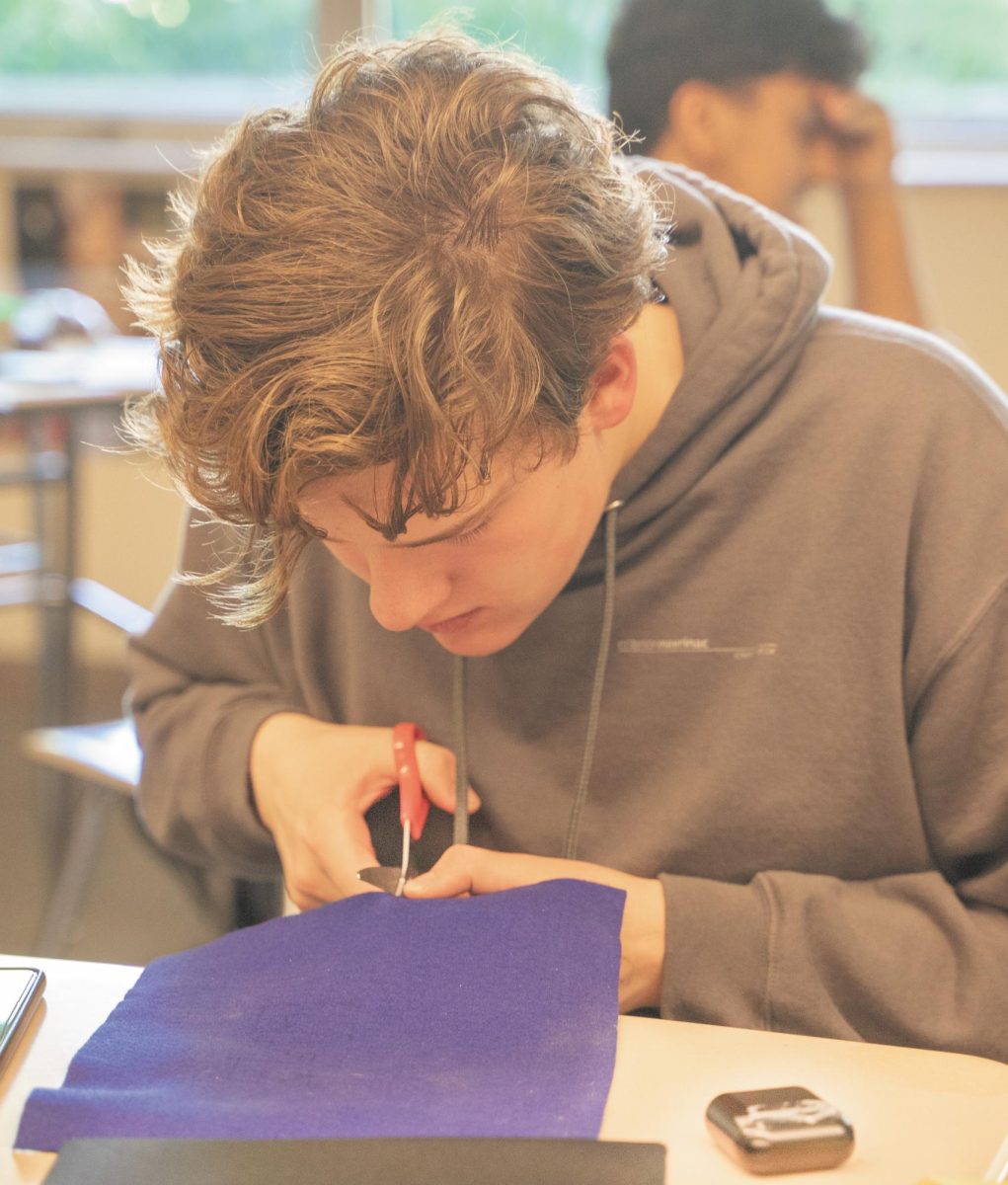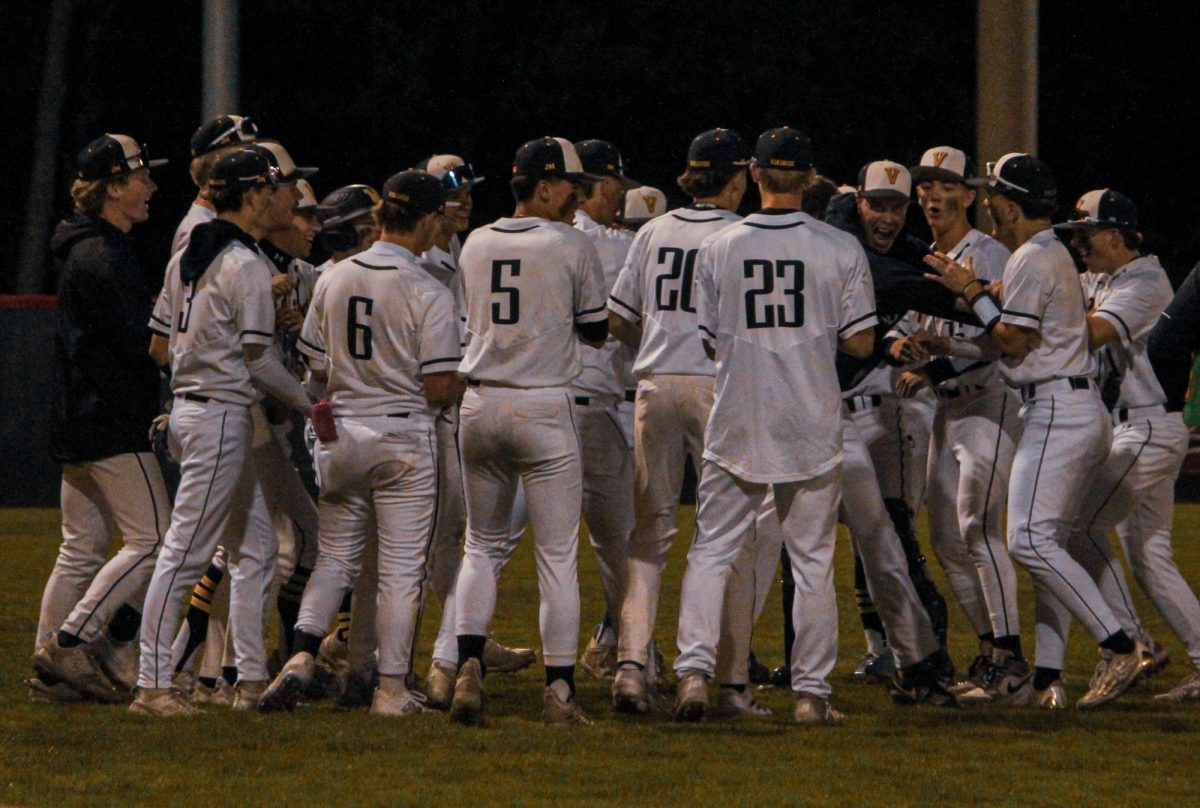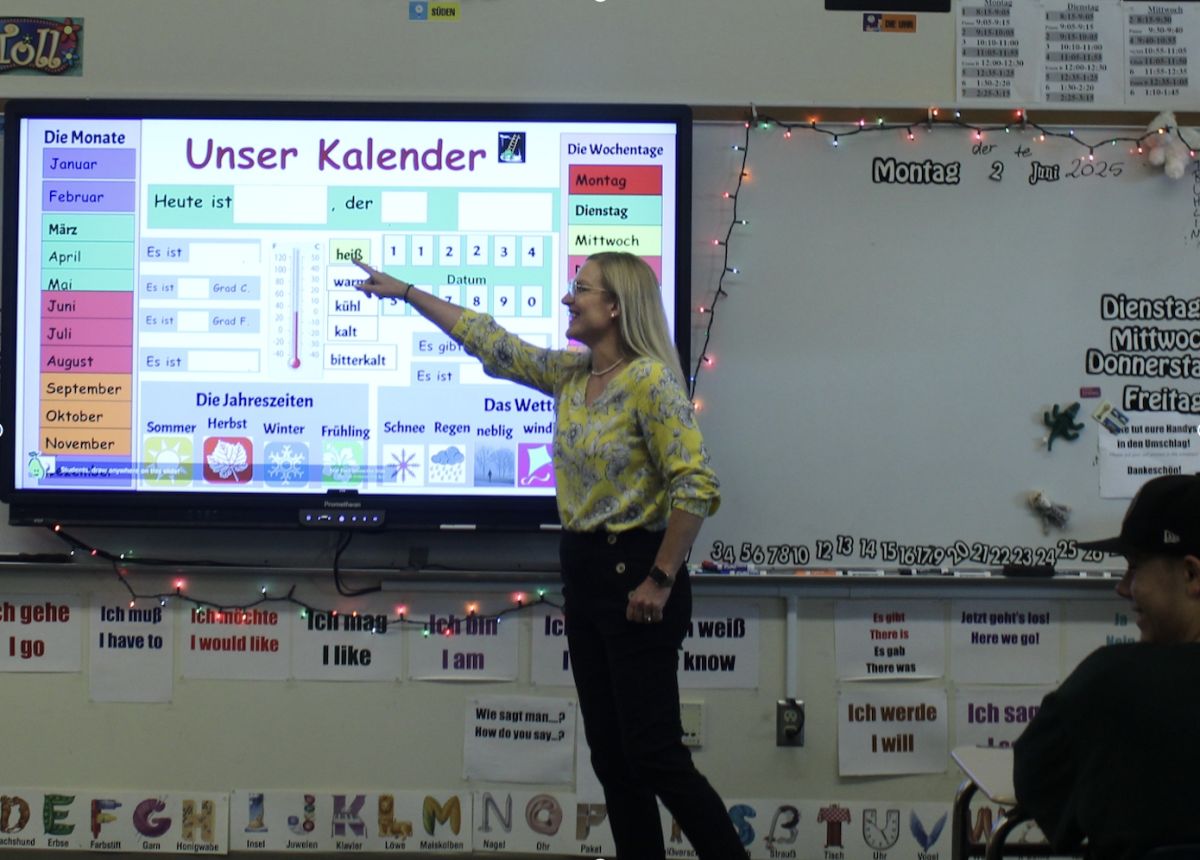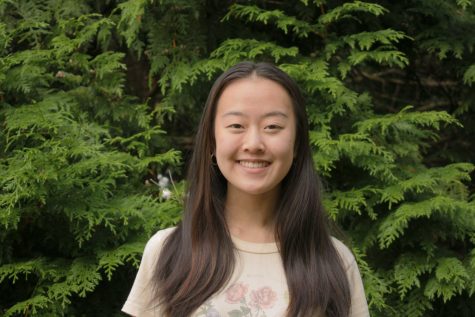Since June of 2018, something special has been brewing in the Little Theater: the drama department’s fall play, “Macbeth.” However, there is a twist in this version of the traditional play about the power struggles of Scotland.
“So obviously, Macbeth is the classic Shakespeare story about a Scottish thane who is told by witches that he’s going to become king,” junior Priya Hendry said. “Because his wife is power-hungry, [he] decides to murder the current King so he can become King, but that falls apart very quickly, and it starts to devolve.”
The change of setting is a major difference in the story, which drama teacher Kevin Bliss carefully implemented. Bliss said he decided to change the setting of “Macbeth” because “it’s a very modern
story, despite being over 400 years old.”
“The ideas are especially relevant to America’s current re-examination of gender roles and eagerness to redefine or eliminate those roles and the notion of gender itself,” Bliss said.
The character of Lady Macbeth led Bliss to associate Macbeth with the modern twists found in Inglemoor’s production and therefore change the setting.
“[Lady Macbeth is the] classic noir femme fatale… ambitious yet disempowered in a patriarchial culture,” Bliss said.
In contrast to the original setting, which is placed in 11th century Scotland, this version is set in a modern era.
“[It’s] our sort of 1920s take on it, set in the Prohibition era. So it’s streetlife, essentially, instead of royalty,” Hendry said.
In this version of the famous play, Hendry compares the environment and characters to that of a gang.
“Macbeth is a higher up gang member but not the highest; the king would be the head of the gang. And then they’re all just involved in gang wars,” Hendry said.
Additionally, common locations in the play are transported to places that the public would go in the 1920’s.
“A good chunk of the play takes place in speakeasies and bars–hangout places,” junior Lily Van Veen said.
According to actors, the impact of this change is that the new version of Macbeth does not feel as historically heavy as the original, which allows students to connect more to the story. However, with such a drastic change to a classic theatre piece, the action provoked reactions from cast members.
“[This version is] more mysterious, more film-noir like… it’s kind of edgy and its honestly kind of sexy,” Hendry said. “High school students can relate to it more…it feels like a black and white movie, like a story you would want to read.”
The difference in setting also allows actors to have a unique experience portraying the new roles.
“The whole cast and crew are having a lot of fun with the changes and with our new characters,” Van Veen said.
For some actors, facing an unfamiliar genre and setting is proving to be a challenge for them. For junior Taylor Reddick, this meant transposing the gender of her character.
“Ross,who I play, is originally a Scottish thane- and male. So gender-bending that character and turning it into a female and then transporting it to the 20th century has been fun and also difficult,” Reddick said.
Actors are also having to adapt to the mature nature of the play.
“I think [Macbeth] is a really cool and deep character… I haven’t really had a character in the past that I’ve had to research as much as this one because he’s very complex. He’s definitely interesting to interpret,” sophomore Sam Pozen said.
The new rendition of Macbeth carries the meaning of the classic play while interpreting it for the modern stage.
Van Veen said “[Macbeth] is a huge cultural phenomenon…so many pieces are influenced by it.”
Finally, this change is an aspect of theater that Inglemoor has never attempted before, bringing a new perspective to viewers.
“This is something we have never tried to do at Inglemoor before,”Bliss said. “I hope to pique their interest in the art form and get them to want to see more live theatre.”



